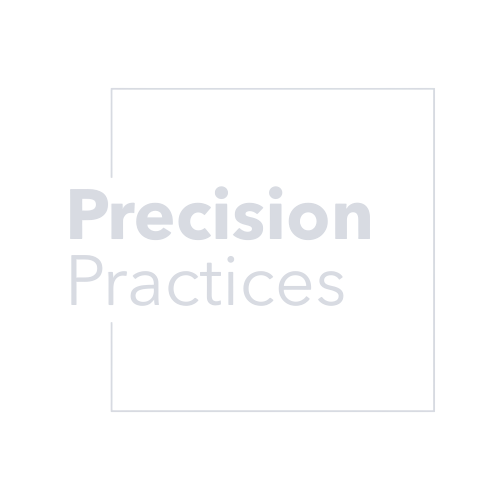Most professional services firms don’t struggle with expertise. They struggle with visibility.
And in 2025, visibility is earned—not assumed. Search engines reward firms that communicate clearly, structure their content intentionally, and create a frictionless digital experience.
Improving your SEO scores isn’t about chasing algorithms. It’s about aligning your website to how real people search, evaluate, and trust firms like yours.
Here’s a practical, no-nonsense guide to boosting your SEO performance.
1. Start With a Technical Foundation That Search Engines Can Trust
You cannot outrank broken infrastructure.
Before you focus on content, make sure your website checks the basics:
Fix what slows your site down
Compress large images
Remove unused plugins
Use lazy loading
Upgrade hosting if your firm has grown beyond the starter plan
Make your site mobile-first
Over 60 percent of service-based queries are now mobile. Google’s index is mobile-only. If your site is clunky on a phone, you’re losing rankings and conversions.
Clean up crawl errors
Use tools like Google Search Console to fix:
404s
Redirect chains
Broken links
Duplicate pages
Why this matters:
Search engines reward stability and penalize chaos. Improving your technical score can move rankings faster than rewriting your entire website.
2. Tighten Your Keyword Strategy Around Buyer Intent
Most professional services firms pick keywords based on what they do—not how clients actually search.
Shift to intent-based keywords: terms people use when they’re looking for solutions, not descriptions of your internal terminology.
Examples for professional services:
“Best litigation firm for class actions”
“Consulting firm for operational efficiency”
“Revenue operations consulting for SMBs”
“Strategic repositioning expert”
“How to choose a professional services consultant”
Cluster your keywords around problems your clients are actually trying to solve—growth plateaus, competitive pressure, client churn, inefficient operations, poor intake conversion, lack of visibility.
3. Rewrite Core Pages With a Clear, Modern SEO Structure
Your homepage, services pages, and About page produce most of your SEO value.
Structure them so search engines understand the hierarchy and humans can skim quickly:
Use clear H1 and H2 sections
Avoid cleverness that hides meaning. “Elevate Your Practice” helps nobody.
“Strategic Growth Consulting for Professional Services Firms” does.
Add deeper content without padding
Aim for 800–1,200 words on core pages with real value—not filler.
Use internal links intentionally
Link to related service pages, case studies, and blogs.
Internal linking is a power move most firms ignore.
Refresh outdated language
If your message reflects who you were five years ago, search engines and clients will treat it that way.
4. Improve Your E-E-A-T: Your Reputation is Part of Your SEO Strategy
Expertise. Experience. Authority. Trust.
Google now ranks firms based on proof, not just prose.
Strengthen your E-E-A-T by:
Publishing high-quality blogs with data and insights
Adding clear bios with credentials
Sharing case studies with measurable outcomes
Featuring media quotes, awards, speaking engagements
Building backlinks from reputable legal, consulting or industry sites
Your digital reputation signals whether you’re a credible choice. Professional services firms cannot afford to skip this.
5. Create Content That Actually Solves Problems
Professional services content often reads like a brochure. It shouldn’t.
High-ranking blogs typically:
Answer specific questions
Explain complex ideas in simple language
Compare options
Offer frameworks
Provide checklists
Give examples from real operations, leadership or growth challenges
Post consistently, but prioritize quality over frequency.
Two exceptional posts a month will outperform eight generic ones.
6. Optimize for Local and Industry-Specific Search
If you serve a region—or specific industries—signal that clearly.
Add:
City, region, or state landing pages
Industry pages (e.g., legal, engineering, veterinary, consulting)
“Near me” phrases where appropriate
Local schema markup
Firms underestimate how much business is lost because their website fails to confirm they serve a specific geography or vertical.
7. Watch Your Analytics Like a CFO Watches Cash Flow
SEO isn’t set-and-forget.
Track the metrics that matter:
Organic traffic
Keyword rankings
Click-through rate (CTR)
Bounce rate
Time on site
Conversion rate from organic search
Which pages support the most new business conversations
Then adjust. SEO rewards firms that learn faster than competitors.
8. Align SEO With Your Overall Growth Strategy
SEO is not a separate project. It’s a growth lever.
Your SEO should reflect:
Your positioning
Your Ideal Client Profile
Your differentiation
Your intake process
Your brand story
Your diagnostic frameworks
The outcomes you deliver
When strategy and SEO reinforce each other, your firm becomes discoverable and desirable.
SEO Keywords and Phrases This Blog Is Optimized For
These are the primary and secondary terms this blog naturally supports:
Primary Keyword Targets
how to improve SEO scores
professional services SEO
SEO guide for professional services
SEO strategy for consulting firms
SEO for law firms
improve website SEO performance
best SEO practices for service firms
Secondary Keyword Targets
technical SEO checklist
SEO content strategy for consultants
E-E-A-T professional services
SEO keyword research for B2B firms
SEO for revenue operations consulting
local SEO for professional services
improve website rankings
SEO best practices 2025
content marketing for professional services
how to rank higher on Google
SEO for founders and small firms
Long-Tail / High-Intent Keyword Opportunities
how to choose an SEO strategy for a consulting firm
why my firm is not ranking on Google
how to fix low SEO scores
improve SEO for B2C law firms
SEO mistakes professional service firms make
how to write SEO-optimized service pages
SEO for strategic growth consulting




